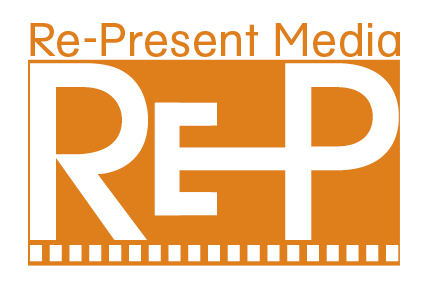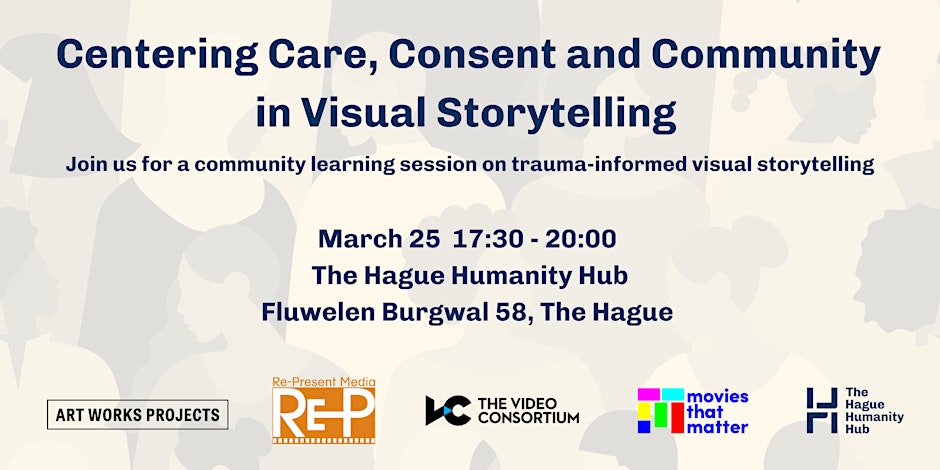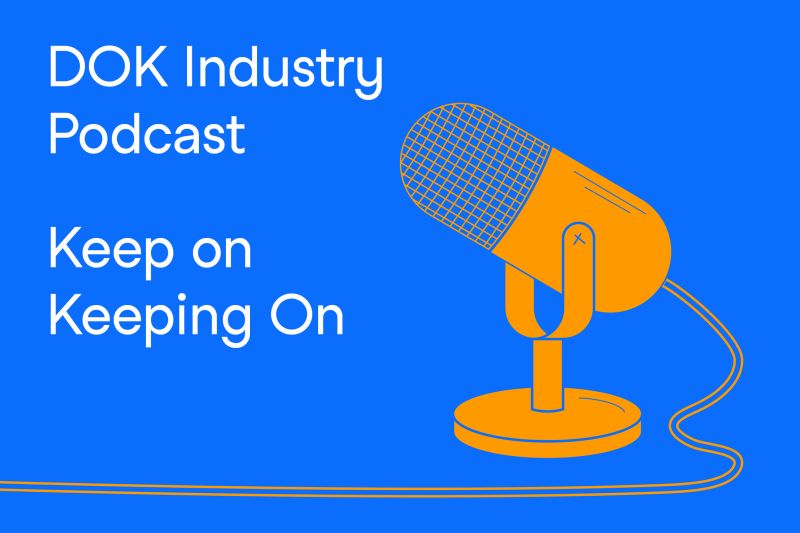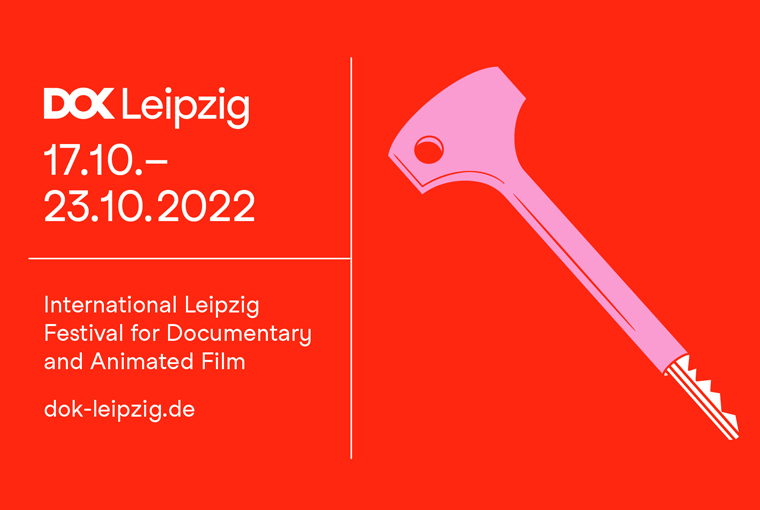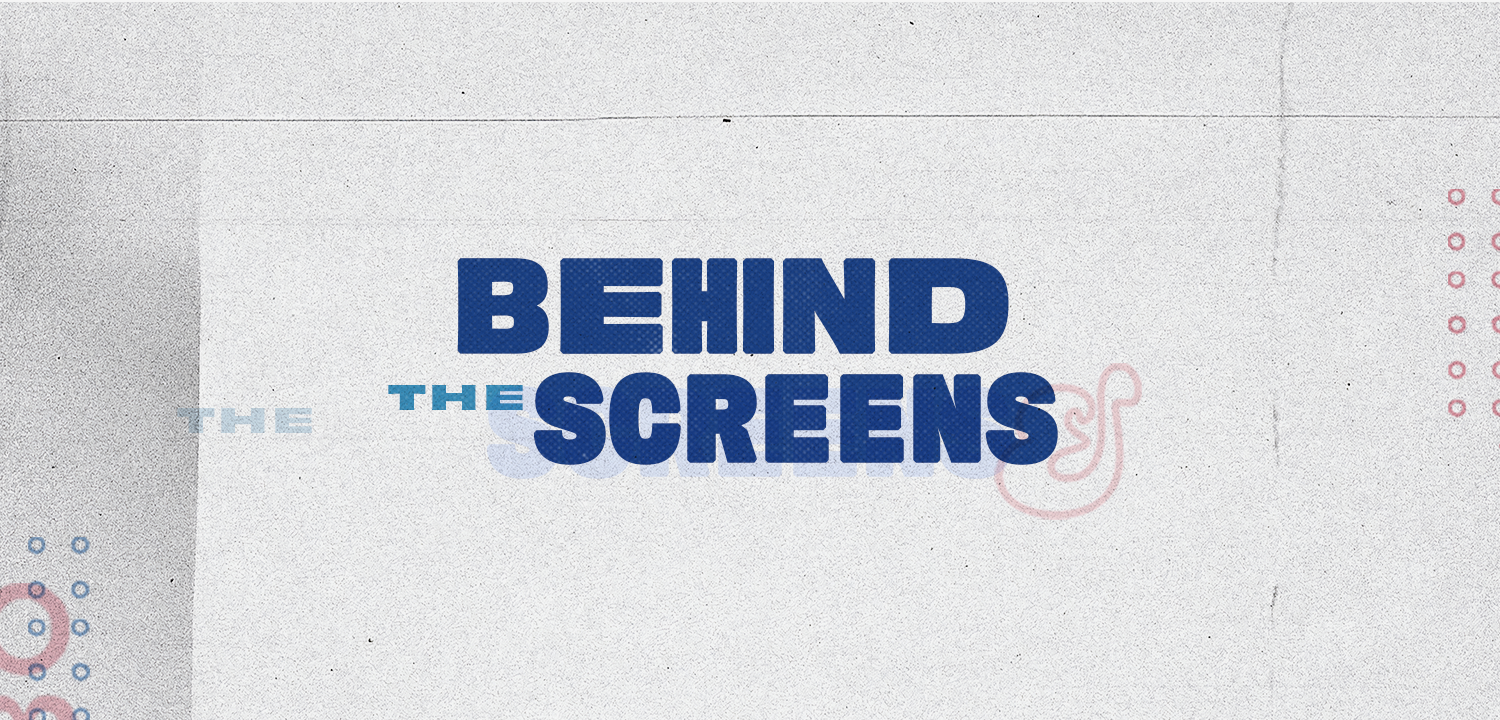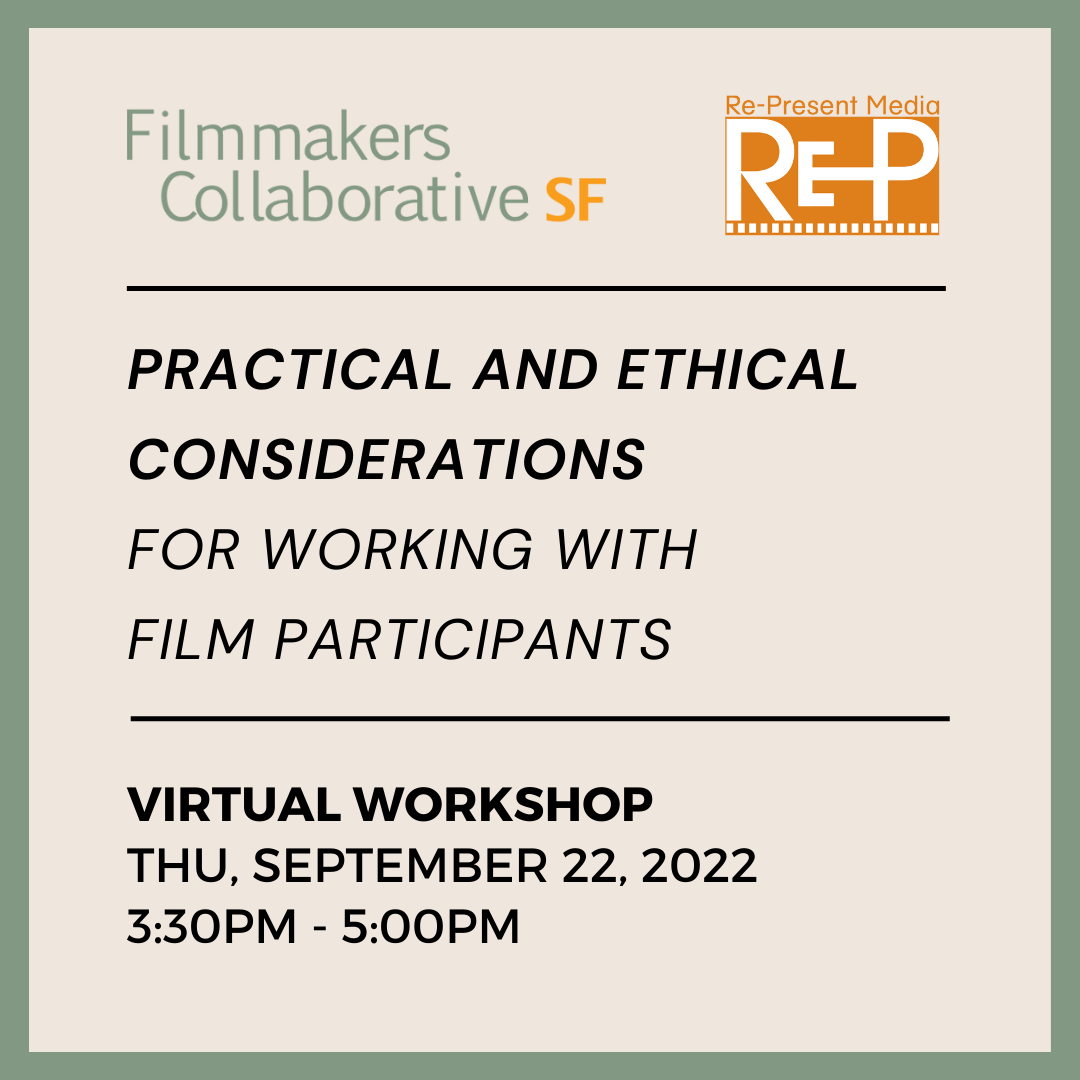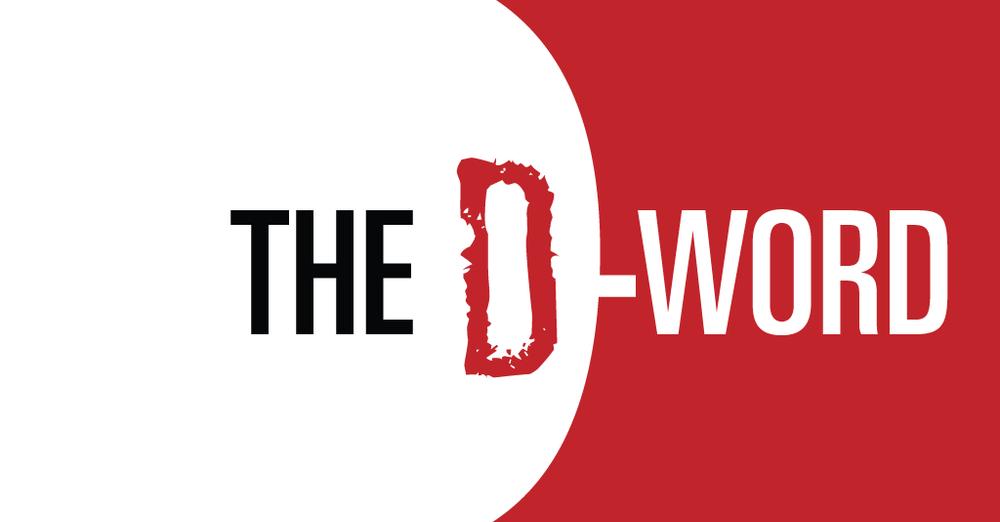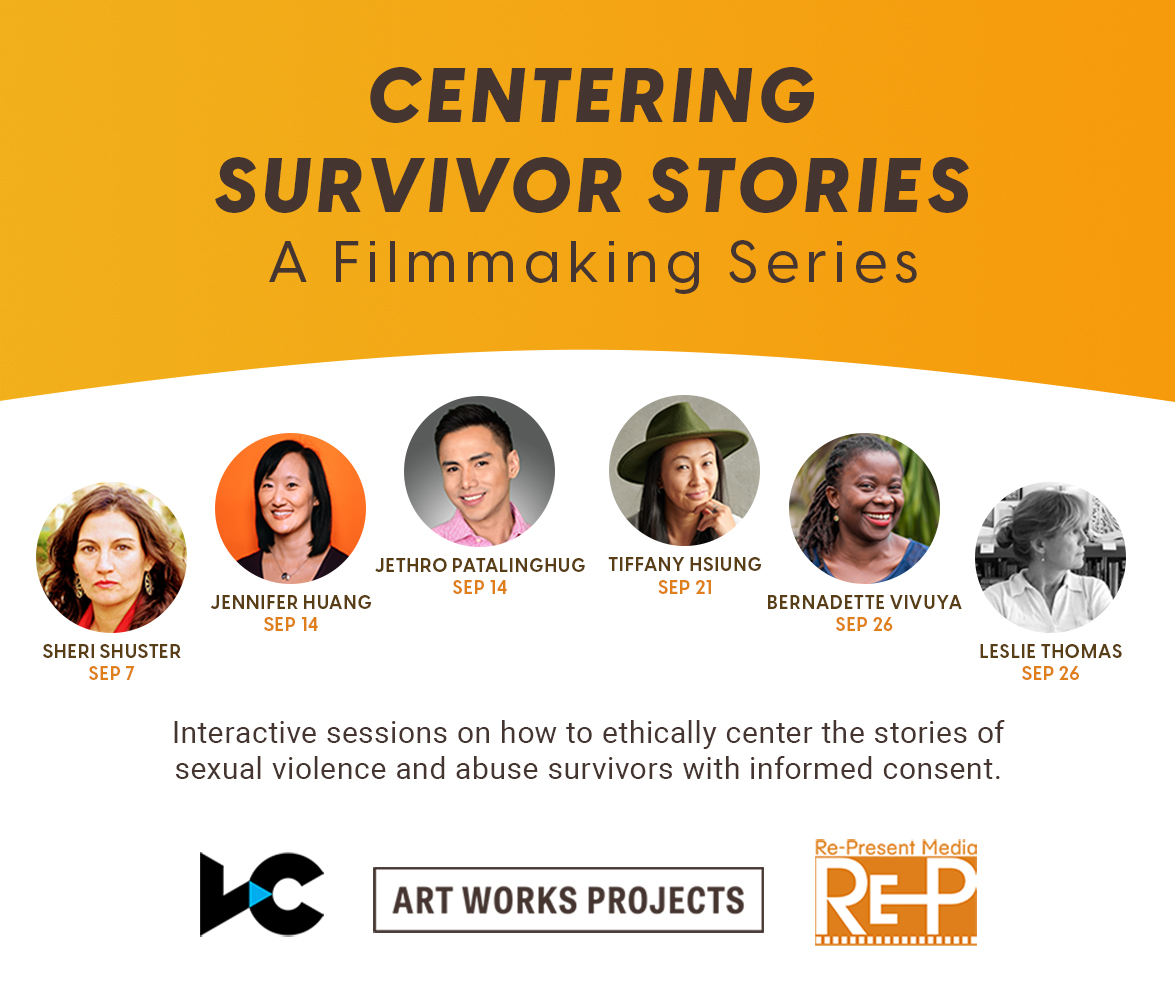
Centering Survivor Stories: A Filmmaking Series will explore how to center the perspectives of sexual violence and abuse survivors in documentary films.
Co-presented by Re-Present Media, The Video Consortium, and Art Works Projects, these workshops feature four films whose work illustrates ethical filmmaking strategies and informed consent practices with film participants.
The events in the series are:
- Still I Rise with Sheri Shuster
- The Long Rescue with Jennifer Huang and Jethro Patalinghug
- The Apology with Tiffany Hsiung
- Letter to My Child from Rape with Bernadette Vivuya and Leslie Thomas
Each interactive, standalone session will focus on a different aspect of the survivor-centered filmmaking process and help filmmakers apply these approaches in their own work. Workshop participants can discuss situations from their own work in a supportive learning environment.
To attend one of the sessions, please fill out the application form. Applications will be reviewed by Re-Present Media and The Video Consortium on a rolling basis. Selected participants will be contacted with instructions on how to register and pay for a selected workshop. Fee waivers are available for those with financial need. Applicants will be notified no later than a week from their application date.
WORKSHOP 1: STILL I RISE
DATE: Wednesday September 7, 2022
TIME: 3:00PM ET (12:00PM PT / 8:00PM BST)
This workshop dives into how race, class, and power affect filmmaking with survivors. Featuring Still I Rise (2018) by Sheri Shuster, this workshop examines how filmmakers can:
- Apply an intersectional lens,
- Make creative choices for strong storytelling without exploitation,
- Benefit the lives of survivors and their communities through the filmmaking process, and
- Work with problematic institutions, such as law enforcement, without legitimizing their practices.
Still I Rise explores the relationship between racism and sex trafficking with dynamic womxn in the San Francisco Bay Area closest to the problem and the solutions. The film follows advocates Holly Joshi and Leah Albright-Byrd as they work to prioritize the interdependence of the anti-trafficking movement and other movements for social equity.
Sheri Shuster is an Iranian-American filmmaker interested in advancing intersectional and moral conversations about racism and power. For over fifteen years she worked with nonprofits and elected officials, including former U.S. Congressman Tom Lantos and The Center for Women and Democracy. From 2008-2012 Sheri served as Associate Director of Covenant House California, advocating for homeless and sex trafficked youth. Sheri’s work has been featured at The African American Policy Forum with Professor Kimberlé Crenshaw and The National Underground Railroad Freedom Center. Sheri is an alumnus of UCLA and the Evans School of Public Policy and Governance.
WORKSHOP 2: THE LONG RESCUE
DATE: Wednesday September 14, 2022
TIME: 1:00PM ET (10:00AM PT / 6:00PM BST)
This workshop dives into an ongoing, long-term consent process with survivors — especially minors — and the financial impacts on filmmakers and film participants. Featuring The Long Rescue (in production) by Jennifer Huang and editor Jethro Patalinghug, this workshop explores:
- Long-term consent processes for participants who are minors,
- Issues that arise when working with impoverished participants, and
- The balancing act between informed consent, project completion, and film fundraising.
The Long Rescue begins where most trafficking stories end: after the rescue. Following teenage survivors in Cebu, Philippines, the film explores how girls can recover from deep violation to find stability, love, and personal agency. Over six years, Hope, Sara, and Carrie grow from idealist teens into struggling young women – sobered, but driven by hard-won inner strength.
Jennifer Huang started Treeclimber Media to tell stories that aren’t being told elsewhere – personal stories of people of color, women, and girls who have been systematically dehumanized. For almost two decades, Huang’s work in documentary and television production has brought her to unexpected roles in disparate places: scrubbing in for a kidney transplant at the Mayo Clinic (Anonymous Content); writing questions for Colin Powell about African American soldiers in WWI (Harlem’s Hellfighters, Lucasfilm); booking an interview with Hugh Jackman in the middle of Sydney Harbor (Get the Edge, Lieberman Productions); and being questioned in a shipping container in Papua New Guinea (Standing on Sacred Ground, Sacred Land Film Project). She recently finished her first documentary short as a director, This Adventure Called California, about a labor trafficking survivor.
Jethro Patalinghug (they, them) is a filmmaker, video producer, visual artist, and queer immigrant activist. You can watch their films 50 Years of Fabulous and My Revolutionary Mother on Amazon and iTunes. They are also known for their drag persona Virginia Please on Tiktok where they highlight representation for queer and trans-BIPOC communities. Jethro was Mr. Gay San Francisco 2016 and Mr. GAPA 2012. They have a B.S. in Digital Filmmaking at the Art Institute of California in San Francisco and are currently finishing an MFA in Studio Art at the Maryland Institute College of Art.
WORKSHOP 3: THE APOLOGY
DATE: Wednesday September 21, 2022
TIME: 1:00PM ET (10:00AM PT / 6:00PM BST)
This workshop dives into telling stories of survivors, decades after the trauma has occurred.
Featuring The Apology (2016) by Tiffany Hsiung, this workshop explores:
- Practicing care with survivors regardless of the passage of time,
- Awareness and care in telling stories that have an intergenerational impact,
- Cultural shame and its impact on participants and during production, and
- The importance of witnessing and listening as part of the filmmaking process.
The Apology follows three former “comfort women” who were among the 200,000 girls and young women kidnapped and forced into military sexual slavery by the Imperial Japanese Army during World War II. Whether seeking a formal apology from the Japanese government or summoning the courage to share their secret with loved ones, these women are motivated by setting future generations on a course for reconciliation, healing, and justice.
Tiffany Hsiung is a Peabody award-winning filmmaker based in Toronto, Canada. Hsiung’s approach to storytelling is driven by the human condition and the relationship that is built with the people she meets both in front and behind the lens. She won the inaugural Toronto International Film Festival Share Her Journey Short Cuts Award for Sing Me a Lullaby (2020) as well as a Directors Guild of Canada award for Best Short Film. In addition to the Peabody award, The Apology (2018) won the DuPont Columbia Award and the Allan King Memorial Award. She was recognized as one of DOC NYC’s 40 under 40.
WORKSHOP 4: LETTER TO MY CHILD FROM RAPE
DATE: Monday September 26, 2022
TIME: 1:00PM ET (10:00AM PT / 6:00PM BST)
This workshop dives into how a survivor’s role can evolve from participant to producer in rewriting social narratives. Featuring Letter to my Child from Rape (2020) by Bernadette Vivuya and Leslie Thomas, this workshop explores:
- Working with film participants who become involved as producers,
- Parental consent and long-term impacts on their children,
- Creative choices in audio and visual storytelling, and
- Rewriting social narratives to empower survivors.
In Letter to My Child from Rape, director Bernadette Vivuya brings to the screen the powerful words of poet-advocate Désanges Kabuo as she braves dangerous prejudice to claim a future for the child she did not choose to have but now loves fiercely. Often, these mothers and their families face stigma from the very communities that should embrace and support them.
Bernadette Vivuya is a Congolese visual journalist and filmmaker based in Goma, Eastern DRC. She works on issues of human rights, the environment, and the exploitation of raw materials, with a particular interest in subjects that testify to the resilience of the people of this region affected by numerous conflicts.
Leslie Thomas is a feature narrative and documentary director, multi-media artist, and architect. Leslie is also the founder of ART WORKS Projects and an Emmy-award winning art director. Her projects have been exhibited on five continents in cultural, civic, and academic centers. Her recent films include The Prosecutors and Thursday’s Child.
To attend one of the sessions, please fill out the application form.
If you have any questions, please contact: [email protected].

